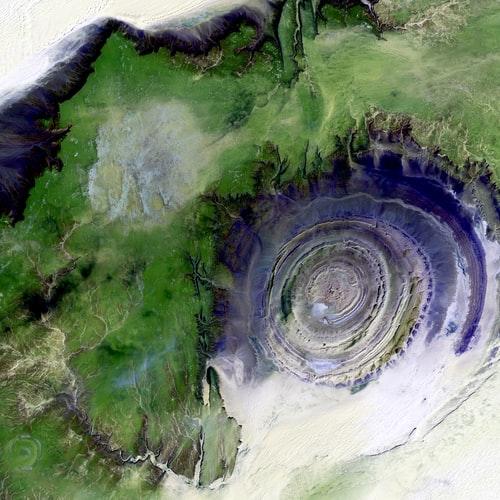
What kind of topics will be discussed in the exams?
To study Geography you need to learn that it’s all about people, places, and natural phenomena. NCEA gives you a great background for geography and provides you with a good taste if you wanted to pursue the subject at a tertiary level. Some people think that the basics of geography are simply the ability to locate a country on a map, but in reality, the study of geography is much more multi-faceted and intricate compared to that common misconception. Within the framework of NCEA Geography, you will look at natural processes that will cover the study of climates, the surface of the earth, and continents. You will also tackle cultural processes which are all about how people interact with their environment. Also, you will embrace what you have learned throughout the year and apply skills based on new geographical material. This is kind of like unfamiliar texts in English, where you are provided with a resource booklet and you need to answer questions based on the resources. If you want some more study material, check out this study guide. Perhaps you would like to study up some past papers to get you clear on what is in the exam. There's also some revision tips here as well. If you would like to push yourself then you can always sign up for scholarship geography. Maybe you would like to see what the courses are like for the year.
Cultural Processes will be a great place to start in your revision!
For this standard, you will need to pick one named process and discuss how the environment has been shaped from this. It will be important to note that these occur at different rates and on different scales and they create spatial variations. We will go into detail about all the terminology later, but it’s a good idea to start a glossary section for your revision. A glossary section keeps all of the terminologies that you will need to know in one handy spot. It’s a great idea to always keep it handy so that when you learn a new term you can add it in straight away. This definitely is helpful when you’re needing to remember so many terms for the exam. Make sure you use highlighters or different coloured pencils- you are a geographer after all and will be needing the coloured pencils. Now back to cultural processes

What are cultural processes:
Cultural processes can be anything from Tourism development, industrialization, dairy farming, migration, mining, right through to urbanization. You will find that the most popular cultural process is tourism and there are a lot more resources for you to look at for this. Some tips for choosing your cultural process is that it must be of a scale to successfully apply to the criteria. This means that you can see the outcome as distinct spatial patterns. Also, it needs to have changed significantly over time. Always remember also that it needs to have impacted people and the environment. Another tip is to pick an environment that’s meaningful to you in some way, this will make it easier as you’ll be more familiar. Do you want to do only one environment? Maybe two? This will be the time to choose. There are good and bad points for both. If you study for only one you can dive much deeper into that environment and really zero in on your examples. The only issue is picking one environment may not show a full range of the process. Picking Gold coast instead of Waitomo for an example of tourism development will work much better. Always remember the more examples you can give the better, just make sure it isn’t too overloaded with information dump- you want the examples to be succinct and not ramblings.
Now thinking back to that glossary mentioned earlier- there are some key terms that you will need to know for this external.
Glossary #1
Environment: a part of the earth that has common natural or cultural characteristics.
Element: Input into an environmental system. This could be anything that is a named thing like Tourists.
Process: A type of action that occurs eg: development of tourist sites
Operation of a process: This is how a process is carried out in a sequential mode of steps. For example, an attraction might be found, then people visit, they use word of mouth to tell more people, more tourists show up and then in turn a business is started to support the influx of people for the attraction.
Shape: the process that the environment looks the way it does. Has a cultural process influenced the make-up or appearance of the environment? How significant is this in shaping the area?
Spatial variation: looks at the difference between multiple locations within the environment. For example, most tourist attractions are concentrated in the middle.
Temporal variation: this is the difference between 2 or more different sets of time in one location. For example, in march 2020 Rotorua saw a huge increase in tourists due to the pandemic, while it would usually be booming in years like 2019.

Natural processes are next up!
You will be looking at the aspects of physical geography and how through interactions of different processes the environment has changed in some way. You might remember studying something similar for Level 2 but this will be up a level and more intensive. This will also show how processes are shaped and highlight different scales and spatial variations.

Here are some tips for choosing your natural environment
First of all, you need to make sure that natural processes are rampant in the environment. It also has to be an environment in New Zealand. There also needs to be at least two interacting processes that are available to be studied within it. For example, if you picked a small beach it may not be big enough to have two processes to delve into. You also need to get the right size for the research to truly appear in your favour. For example, if the location is too small you won’t be able to monitor the interacting processes. In the same way, if it’s too big then people will use a broad brush in talking about the processes that occur. It would be unwise to pick all the southern alps for example. Remember, the more specific the better, why not select a glacial valley? Again as with the cultural processes make sure that the environment you select is meaningful to you, it needs to have resonance or impact you in some way.
Glossary #2
Interacting: What links different processes or elements together. For example, having a big glacier ridge affects the rate that the glacier melts.
Different rates of processes: Processes can occur only sometimes while some occur all the time and have no break.
Different scale of processes: Some processes are small and only affect a small area while others have a bigger impact.
Feature: What ends up happening is the outcome of processes doing their thing. For example sand dunes have a process of their creation.
Let’s jump to the last exam, what can I expect?
AS91429 is all about understanding a given environment. Involved deeper in this, will be your ability to select and apply geographic concepts and skills. You will have a resource booklet that will be filled with data on a geographic concept based on a theme that you have not studied. This could be from one location or two, it depends on what they put in that year. For example, it could be urbanization and talk about the effects on a city like Tokyo. On the other hand, they may include two different cities to be compared on something like waste management for example. You won’t know what they will ask of you and just be prepared for both options. Within this, you will be expected to use your prior and developed geographic knowledge so that you can best answer the questions and best apply the data from the resource booklet to back up your claims.

Are there any tips for AS91429?
Remember that interacting processes (both cultural and natural) can happen at different scales. For example, erosion may be different in two to three different locations of the same spot. It’s your job to talk about the spatial variation and how the scale can influence this pattern. The next part you need to be focused on is the people element. You will need to know how diverse people have unique and separate opinions that influence their perceptions of the environment. Make sure you answer the part of the question that mentions the social, economic and environmental responses that they each have. Each group of people and individuals offers a unique take on this so make sure that you unpack their situation and perspective fully.
Maybe you think you are needing some extra help to let everything solidify? Superprof has a whole range of tutors who provide one on one help to get your geography to the next stage. Simply log on to Superprof.com and you will instantly be greeted with a whole range of tutors, make sure you select the subject you are wanting assistance with. You can even try a session for free and there is no obligation to get another lesson. You could even try a few tutors so that you can find the one that best suits you and your learning style. On top of this ask your teacher if they have any more resources as this may help you in your revision.
Summarise with AI:















